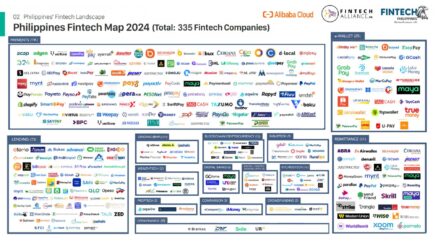Every Filipino dreams of escaping the paycheck-to-paycheck grind. Struggling to pay off credit card debt is disheartening, and it feels even worse when you find yourself broke—or worse, poor—by the middle of the month. Regardless of our financial situations, we all crave deeper pockets and more financial freedom. Is this really possible? The answer is yes, but it requires a change in how you manage your money. Identifying and breaking bad money habits can help you avoid financial pitfalls and create a more stable future.
1. Procrastinating About Your Finances
Procrastination can be detrimental, especially when it comes to managing your finances. Forgetting to pay your phone or electric bill because “there’s still time” often results in overdue charges. Paying your child’s tuition fees in installments, despite having the funds to pay in full, incurs additional fees that add up over time. Avoiding a clear understanding of your financial situation will cost you money. It’s crucial to quit procrastinating and start managing your finances proactively.
2. Spending Money on Things You Can’t Afford
If you can’t afford the latest iPhone or a new car, it’s best to hold off on those purchases. Upgrading your still-functional Toyota Wigo to a Mini Cooper with five-year monthly payments, despite both serving the same purpose, is unwise. It’s easy to fall into debt when chasing material aspirations. Treat yourself within reason and make sure your spending aligns with your financial reality.
3. Relying on Only One Income Stream
Unlike other cultures, Filipinos often aren’t naturally enterprising. Many of us believe that working for others is the only way to make a living, influenced by a colonial mindset. While being an employee provides stability, job loss or company failure can lead to financial hardship. Relying solely on one source of income is risky. Diversify your income streams through side hustles like freelancing, baking, or passive income investments such as P2P lending.
4. Falling for Get-Rich-Quick Traps
Building wealth takes time and effort. Filipinos often fall for get-rich-quick schemes out of impatience, lured by promises of high returns. These schemes usually result in financial loss, erasing the hard-earned money you intended to grow. Focus on long-term financial strategies that involve education, hard work, and perseverance.
5. Thinking Like a Consumer
A consumer mentality leads to financial stagnation. Prioritizing spending on clothes, gadgets, cars, or appliances over investments that appreciate, like real estate or diversified portfolios, keeps you financially stagnant. Shift your focus from temporary pleasures to long-term financial growth. Break your spending habits and concentrate on increasing your wealth, enabling you to afford luxuries comfortably in the future.
6. Not Setting Money Goals
Failing to set realistic financial goals hinders your financial progress. If you spend your salary on bills and expenses first and save only what’s left, you’re not maximizing your savings potential. Establish specific goals, such as saving PHP 80,000 in your emergency fund by Christmas. Achieve this by cutting unnecessary expenses, like reducing weekly Starbucks visits or stretching mani-pedi sessions. Clear goals help you track and manage your financial progress effectively.
7. Not Educating Yourself About Money
The worst financial habit is ignorance. In today’s digital age, a wealth of financial information is readily available online. Understanding investment basics, loan terms, and financial jargon is essential for making informed decisions. Start by reading finance books or visiting educational websites to build your financial knowledge. Educating yourself about money management is crucial for long-term financial stability.
Breaking these bad habits can significantly improve your financial situation. Share your experiences and thoughts in the comments section below. Let’s learn from each other and move toward a more secure financial future.




